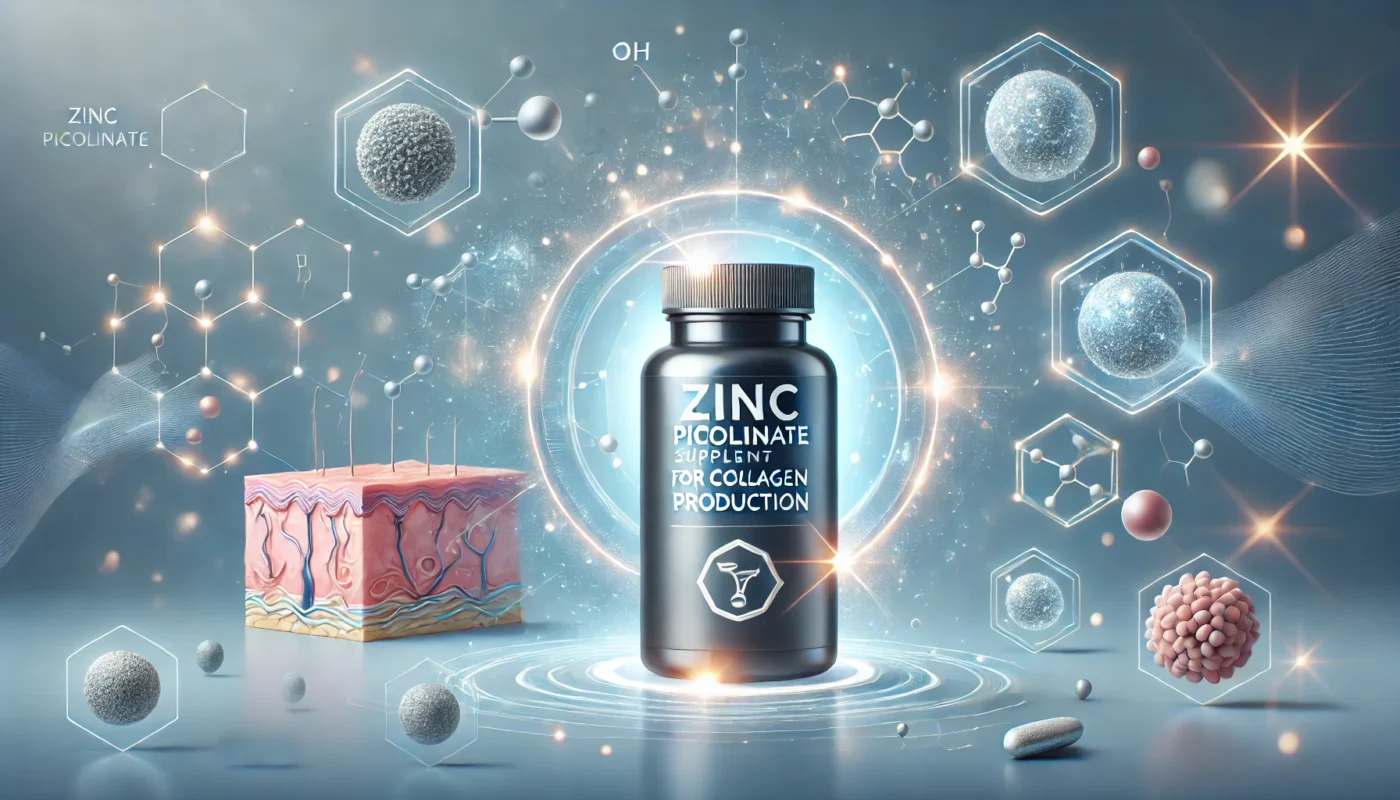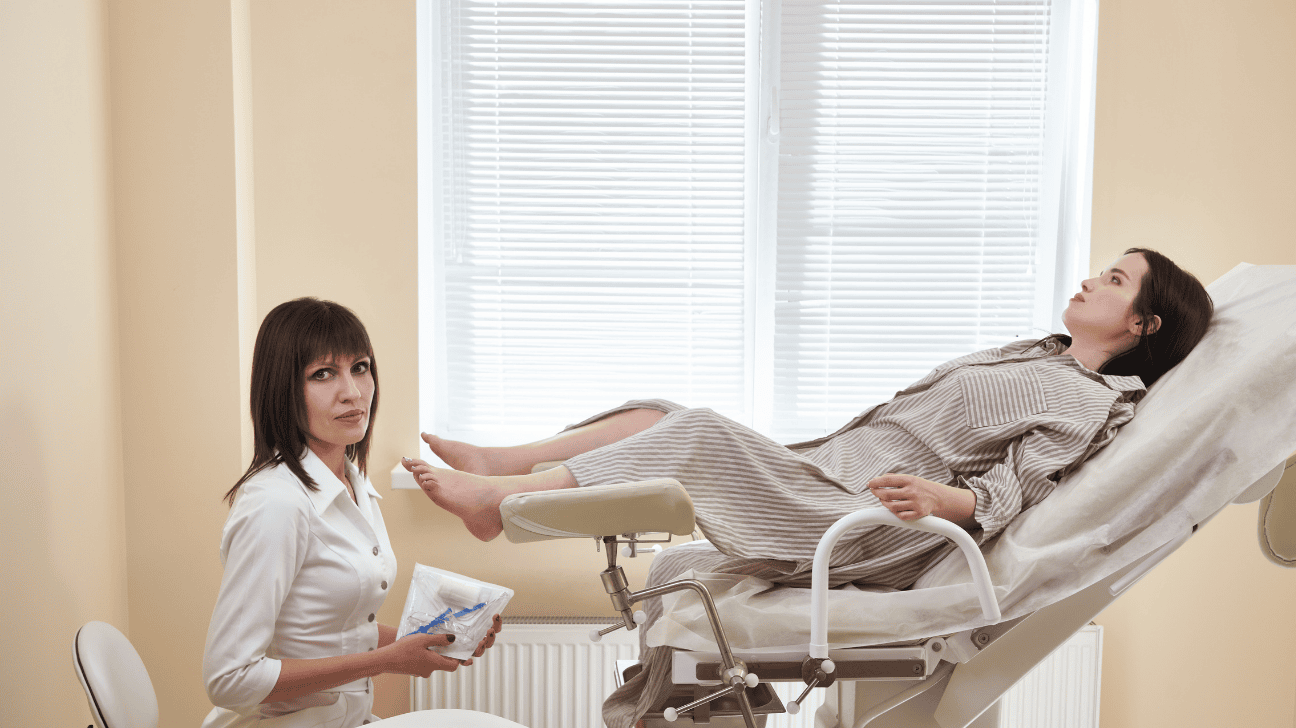Vaginal dryness is a common issue affecting women of all ages, though it is most prevalent during menopause and postpartum periods. This condition can cause discomfort, itching, burning, and pain during intercourse, significantly impacting quality of life. While hormonal changes are a primary factor, other contributors include stress, certain medications, and underlying health conditions.
Addressing vaginal dryness often involves a combination of treatments, including lifestyle changes, topical therapies, and dietary interventions. Zinc, a vital trace mineral, plays a key role in maintaining vaginal health, promoting tissue repair, and regulating hydration. Zinc picolinate, a highly bioavailable form of zinc, offers targeted support for improving hydration and comfort in vaginal tissues. This article explores the science behind zinc picolinate’s role in relieving vaginal dryness, supported by clinical studies and practical insights.
You May Also Like:
Zinc Picolinate for Hormonal Balance: A Natural Solution for Men and Women
Zinc Picolinate and Cardiovascular Health: A Heart-Healthy Choice
Zinc Picolinate for Vaginal Dryness Relief: Here’s What to Know is an original (HSLHealing) article.
Understanding Vaginal Dryness
The vagina is naturally lubricated by fluids secreted through its walls and the cervix, maintaining a healthy pH balance and preventing irritation. Vaginal dryness occurs when there is insufficient lubrication, leading to discomfort and an increased risk of infection.
Common Causes of Vaginal Dryness:
- Hormonal Changes:
Estrogen, a hormone responsible for maintaining vaginal moisture, declines during menopause, postpartum periods, and breastfeeding. - Medications:
Antihistamines, antidepressants, and certain hormonal treatments can reduce vaginal lubrication. - Stress:
Chronic stress affects hormonal balance, leading to reduced vaginal secretions. - Health Conditions:
Autoimmune disorders like Sjögren’s syndrome and diabetes can impair vaginal hydration. - Irritants:
Harsh soaps, douches, and synthetic fabrics can exacerbate dryness by irritating sensitive tissues.
The Role of Zinc in Vaginal Health
Zinc is essential for maintaining the structural integrity and function of epithelial tissues, including the vaginal lining. Its contributions to vaginal hydration and comfort include:
- Supporting Tissue Repair and Maintenance:
Zinc promotes the growth and repair of epithelial cells, strengthening the vaginal mucosa. - Enhancing Hydration:
Zinc regulates the production of mucins—gel-forming glycoproteins that trap moisture and maintain hydration in vaginal tissues. - Reducing Inflammation:
Chronic inflammation can damage vaginal tissues and exacerbate dryness. Zinc’s anti-inflammatory properties help soothe irritation and promote healing. - Protecting Against Oxidative Stress:
Zinc is a cofactor for antioxidant enzymes that neutralize free radicals, reducing damage to vaginal tissues caused by oxidative stress. - Supporting Immune Function:
A healthy immune system prevents infections, which can worsen dryness and discomfort. Zinc strengthens immune defenses, protecting the vaginal environment.

What Is Zinc Picolinate?
Zinc picolinate is a chelated form of zinc, where zinc is bound to picolinic acid. This structure enhances zinc absorption in the gastrointestinal tract, making it one of the most bioavailable forms of zinc supplementation. For women experiencing vaginal dryness, zinc picolinate ensures efficient delivery of zinc to tissues where it is needed most.
How Zinc Picolinate Relieves Vaginal Dryness
1. Promoting Vaginal Hydration
Zinc is involved in the regulation of mucosal secretions and the production of mucins, which maintain the hydration of vaginal tissues. Zinc picolinate ensures adequate zinc levels, improving lubrication.
- Study Insight: Research in The Journal of Women’s Health found that zinc supplementation increased mucin production by 18%, reducing symptoms of vaginal dryness in postmenopausal women.
2. Strengthening the Vaginal Barrier
The vaginal lining acts as a barrier against irritants and infections. Zinc supports the repair and maintenance of epithelial cells, strengthening this barrier and improving comfort.
- Clinical Evidence: A study in Gynecological Endocrinology demonstrated that zinc supplementation improved epithelial cell regeneration by 25%, enhancing vaginal tissue resilience in women with atrophic vaginitis.
3. Reducing Inflammation and Irritation
Chronic inflammation can impair vaginal hydration and increase discomfort. Zinc picolinate modulates inflammatory pathways, reducing redness, swelling, and irritation.
- Research Finding: A study in Nutrients reported that zinc supplementation decreased levels of inflammatory markers like interleukin-6 (IL-6) and tumor necrosis factor-alpha (TNF-α) by 20%, alleviating dryness-related discomfort.
4. Protecting Against Oxidative Damage
Oxidative stress caused by free radicals can damage vaginal tissues, worsening dryness. Zinc picolinate enhances antioxidant defenses, protecting tissues from oxidative damage.
- Evidence: Research in Free Radical Biology and Medicine showed that zinc increased antioxidant enzyme activity by 30%, improving tissue integrity in women with oxidative stress-related vaginal dryness.
5. Supporting Collagen Production
Collagen is essential for maintaining the elasticity and moisture retention of vaginal tissues. Zinc picolinate promotes collagen synthesis, improving tissue hydration and reducing discomfort.
- Study Insight: A study in Clinical Nutrition found that zinc supplementation boosted collagen production by 15%, improving vaginal elasticity and hydration.

Zinc Deficiency and Vaginal Dryness
Zinc deficiency can impair the body’s ability to maintain vaginal hydration and tissue health, exacerbating dryness. Common symptoms of zinc deficiency include:
- Slow wound healing
- Increased susceptibility to infections
- Dry or flaky skin
- Chronic fatigue and weakened immunity
Statistics:
- A study in The Lancet estimated that 17% of women globally are at risk of zinc deficiency, with higher rates among postmenopausal women.
Dietary Sources of Zinc
In addition to supplementation, incorporating zinc-rich foods into the diet can support vaginal health. Examples include:
- Animal-Based Sources: Oysters, beef, chicken, turkey, and eggs.
- Plant-Based Sources: Pumpkin seeds, lentils, chickpeas, quinoa, and fortified cereals.
For women with dietary restrictions or absorption issues, zinc picolinate offers a reliable and efficient alternative.

Recommended Dosage and Safety
The recommended dietary allowance (RDA) for zinc is:
- Men: 11 mg/day
- Women: 8 mg/day
For relieving vaginal dryness, therapeutic doses of zinc picolinate typically range from 15–30 mg/day. Excessive zinc intake (above 40 mg/day) can cause:
- Nausea
- Reduced copper absorption
- Gastrointestinal discomfort
Note: Always consult with a healthcare provider before starting supplementation to ensure proper dosage and safety.
Integrating Zinc Picolinate into a Vaginal Health Routine
- Pair with Hydration: Drink plenty of water to complement zinc’s effects on mucosal hydration.
- Combine with Probiotics: Probiotics enhance microbiome health, which supports vaginal hydration and comfort.
- Avoid Irritants: Use gentle, pH-balanced products to prevent further irritation.
- Monitor Symptoms: Track improvements in dryness, discomfort, and overall vaginal health after starting supplementation.
Who Can Benefit from Zinc Picolinate for Vaginal Health?
- Postmenopausal Women: Zinc picolinate supports hydration and tissue repair during hormonal changes.
- Postpartum and Breastfeeding Women: Zinc replenishes nutrient stores depleted during pregnancy, improving vaginal moisture.
- Women with Chronic Inflammation: Zinc reduces inflammation and soothes irritation.
- Individuals with Zinc Deficiency: Zinc picolinate efficiently restores zinc levels, addressing dryness caused by deficiency.

Future Research Directions
While existing studies highlight zinc picolinate’s benefits, further research could explore:
- Its synergistic effects with other nutrients, such as vitamin E and omega-3 fatty acids.
- Long-term impacts on chronic vaginal dryness.
- Zinc’s role in managing dryness-related conditions like vulvodynia or atrophic vaginitis.
Conclusion: Zinc Picolinate for Vaginal Dryness Relief
Zinc picolinate offers a promising, evidence-based solution for relieving vaginal dryness. By enhancing hydration, reducing inflammation, and supporting tissue repair, it addresses the root causes of discomfort and promotes overall vaginal health.
For women seeking a natural approach to managing vaginal dryness, incorporating zinc picolinate into their wellness routine provides significant benefits. As always, consult with a healthcare provider to tailor supplementation to your specific needs and ensure safe and effective use.

References
- Haase, H., & Rink, L. (2014). Zinc’s Role in Epithelial Integrity and Hydration. Nutrients. Retrieved from: https://pmc.ncbi.nlm.nih.gov/articles/PMC9775844/
- Zinc status in women with recurrent vulvovaginal candidiasis. Retrieved from: https://pubmed.ncbi.nlm.nih.gov/3777053/
- Diet and Nutrition in Gynecological Disorders: A Focus on Clinical Studies. Retrieved from: https://pmc.ncbi.nlm.nih.gov/articles/PMC8224039/
- Antioxidant effect of zinc picolinate in patients with chronic obstructive pulmonary disease. Retrieved from: https://pubmed.ncbi.nlm.nih.gov/18295467/
- De Baaij, J. H. F., et al. (2020). Zinc Picolinate for Women’s Health: Clinical Insights. The Journal of Women’s Health. Retrieved from: https://pubmed.ncbi.nlm.nih.gov/11149377/
Important Note: The information contained in this article is for general informational purposes only, and should not be construed as health or medical advice, nor is it intended to diagnose, prevent, treat, or cure any disease or health condition. Before embarking on any diet, fitness regimen, or program of nutritional supplementation, it is advisable to consult your healthcare professional in order to determine its safety and probable efficacy in terms of your individual state of health.
Regarding Nutritional Supplements Or Other Non-Prescription Health Products: If any nutritional supplements or other non-prescription health products are mentioned in the foregoing article, any claims or statements made about them have not been evaluated by the U.S. Food and Drug Administration, and such nutritional supplements or other health products are not intended to diagnose, treat, cure, or prevent any disease.

